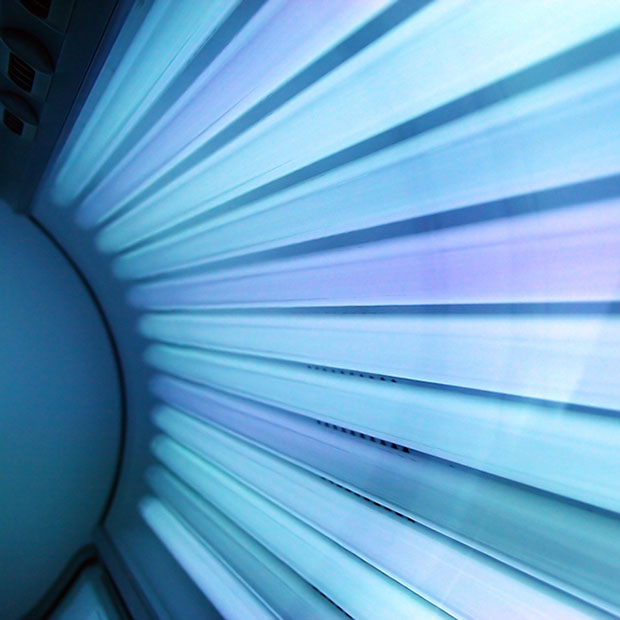
Indoor tanning is NOT a safe alternative to sunbathing, including for eye health.
In fact, indoor tanning is so unsafe that a group of eye doctors, dermatologists, surgeons, and other physicians went before Congress to brief them about the negative health effects, and the World Health Organization warns that indoor tanning comes with a high risk of skin cancer. What exactly is the risk a tanning bed can pose to eye health?
A High Level of UV Exposure Is Terrible for Our Eyes
Any time we are exposed to UV radiation, the effects are cumulative over the course of our lifetimes, so even if it doesn’t seem bad in the moment, any damage can build up over time with additional exposure. The reason tanning beds are especially dangerous is that they expose us to 100 times the UV radiation that we would get by going outside on a sunny day. It’s bad for our skin and it can do serious damage to our eyelids and eyes.
But What If I Keep My Eyes Closed in the Tanning Bed?
In a tanning bed, even closing your eyes isn’t enough to protect them from such strong UV rays. In the short term, it can lead to eye problems like sunburn, blurry vision, and dry eye. Yes, our eyes can sunburn too. When the cornea gets sunburned, we call it photokeratitis, and symptoms include burning, redness, a gritty feeling under the eyelids, and runniness. Dry eye can also make the eyes red and irritated, and the reduced tear production makes infections more likely.
Long-term, it could contribute to macular degeneration and cataracts. These sight-threatening conditions are typically associated with old age, but indoor tanning will considerably shorten the road leading to them. Macular degeneration is the deterioration of detailed central vision, while cataracts are the clouding of the lens in the eye as the transparent proteins in them clump together and become opaque, obscuring colors and vision.
A Tan Isn’t as Important as Eye Health
Whether or not bronze skin is in, it’s not worth it when it comes at the expense of UV damage to the skin and the eyes. Of course, we don’t have the power to ban indoor tanning (or regular sunbathing), but we strongly encourage our patients to prioritize eye and skin health over fickle beauty standards. Using bronzer would be safer, or at the very least, wear protective goggles while tanning.
Please make lifelong eye health a priority!
Top image by Flickr user pixel2008 used under Creative Commons Attribution-Sharealike 4.0 license. Image cropped and modified from original.
The content on this blog is not intended to be a substitute for professional medical advice, diagnosis, or treatment. Always seek the advice of qualified health providers with questions you may have regarding medical conditions.











